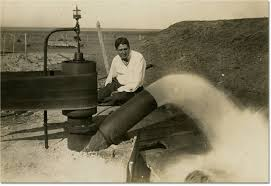Double Standards in Texas Water Law
Under Texas Water Code, there is a double standard between groundwater and surface water. Groundwater is generally the property of the landowner as long as it is on private property, while surface water is property of the state.
The Water Code Section 35.002 defines groundwater as “water percolating below the surface of the earth.” But it does not clearly define “percolating.” Other forms of groundwater sources include “underground rivers” (aka subterranean streams) and “underflow,” both of which are excluded from the definition of groundwater in Section 52.001 of the Water Code. Section 35.003 states, “Surface water laws are not applicable. The laws and administrative rules relating to the use of surface water do not apply to groundwater.”
Andrew Sansom, Director of the River Systems Institute at Texas State University, has emphasized that we are currently given permission by the state to withdraw more water from our rivers and lakes than the amount that is actually in them. And as surface water levels decline in the midst of the drought, Texas becomes more dependent upon groundwater sources. Again it sheds light on the double standard, as the state treats surface and groundwater as two completely different substances. Much of it is rooted in the water rights system. This starts with the “rule of capture,” which allows individual landowners to pump as much water as they wish from the underlying aquifer, without liability for injury to an adjacent landowner caused by excessive pumping.
 Water use is a zero-sum game; one landowner benefits at the other’s detriment. Since the Water Code’s definition of groundwater only stipulates “percolation,” it essentially says that if you pump it, you own it. Texas courts presume that that all groundwater is “percolating” and property of the landowner until it is conclusively shown to be a subterranean river or underflow. This was settled by the Texas Supreme Court case Houston & T.C. Ry v. East in 1904.
Water use is a zero-sum game; one landowner benefits at the other’s detriment. Since the Water Code’s definition of groundwater only stipulates “percolation,” it essentially says that if you pump it, you own it. Texas courts presume that that all groundwater is “percolating” and property of the landowner until it is conclusively shown to be a subterranean river or underflow. This was settled by the Texas Supreme Court case Houston & T.C. Ry v. East in 1904.
The rule of capture also sheds light on the political imbalance between private property rights and the public interest of protecting groundwater as a natural resource and public utility. If groundwater were universally owned by the state, just as surface water is, any state intervention onto landowner property regarding groundwater use should not be viewed as an intrusion of private property rights.
A similar principle applies to private land in regards to wildlife. A game warden or any Texas Parks & Wildlife official does not need a search warrant from a judge to search one’s land; this is because the wildlife is property of the state agency, which also issues hunting and fishing licenses, sets the dates for hunting seasons, and cracks down on poaching.Groundwater district officials could follow the same guidelines as TPWD officials; groundwater is to them as wildlife is to TPWD. One is not entitled to kill as many deer as he wishes in the name of private property rights; the same principle should be applied to pumping groundwater on private property.


